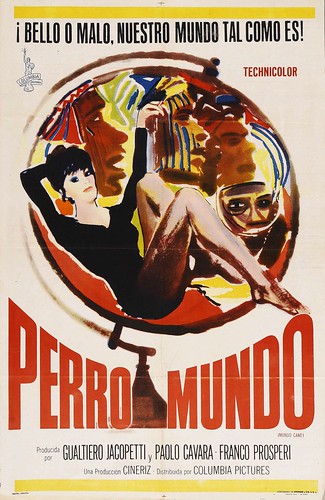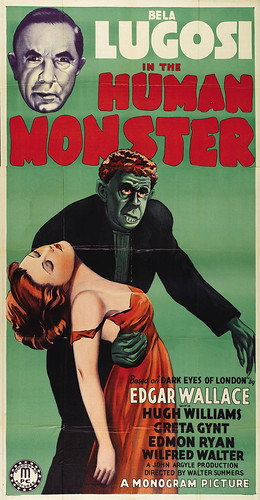The history of Dr. Peter Blood, Sabatini's gentleman corsair, is treated with visual beauty and a fine, swaggering arrogance in the new screen version of "Captain Blood" at the Strand Theatre. With a spirited and criminally good-looking Australian named Errol Flynn playing the genteel buccaneer to the hilt, the photoplay recaptures the air of high romantic adventure which is so essential to the tale. Providing a properly picturesque background for Dr. Blood's piratical career, the Warner Brothers skillfully reconstruct the England of the sanguinary Monmouth uprising, the West Indies of tortured slaves and savage masters, and the ships that sailed the Spanish Main flying the jolly roger.
Only yesterday Basil Rathbone was grinding the poor of Paris in "A Tale of Two Cities," and now, with equal skill if slightly increased likableness, he is quarreling with Captain Blood over the disposition of the handsome English captive, Miss Arabella Bishop. Mr. Rathbone has a habit of dying violently in his pictures, but his demise in this one, when Blood punctures him at the conclusion of a desperately waged duel, seems more lamentable than usual. Perhaps it is because he lacks the proper seasoning of villainy this time.
All Levasseur, the picturesque French freebooter, wanted was the girl, who was rightfully his by right of conquest. Somehow it seemed extravagantly prissy of the Englishman to fight him in abstract defense of the lady's honor instead of admitting candidly that he wanted Arabella for himself. Anyway, it is a brave bit of sword-play that these audacious fellows put on, up and down the Coast, while their rival crews look on.
You may recall that Dr. Blood was an amateur pirate, forced into the business because King James had shipped him off to the Indies with the other condemned Monmouth rebels. A physician by profession, his part in the uprising was innocent, but the king's court convicted him along with the rest. He scorned his masters and laughed when they flogged him, but Arabella saved him from a living death in her uncle's mines at Port Royal because she liked his courage and his face. Then he led the slaves in an uprising, stole a Spanish ship while its crew was looting the town and became the most celebrated corsair in the Caribbean.
Mr. Flynn has an effective cast at his back. Olivia de Havilland is a lady of rapturous loveliness and well worth fighting for. Lionel Atwill, as the cruel governor of Port Royal, is as thorough a knave as Peter Blood is a gentleman. Among the excellent group of players who people the smaller rôles you will discover E. E. Clive, the wonderful jurist of "A Tale of Two Cities," who is humorously effective if somewhat less spectacular as the clerk of the bloody assizes.
CAPTAIN BLOOD, based on the novel by Rafael Sabatini; screen play by Casey Robinson; directed by Michael Curtiz; a Warner Brothers production. At the Strand.
Peter Blood . . . . . Errol Flynn
Arabella Bishop . . . . . Olivia de Havilland
Colonel Bishop . . . . . Lionel Atwill
Levasseur . . . . . Basil Rathbone
Jeremy Pitt . . . . . Ross Alexander
Hagthorpe . . . . . Guy Kibbee
Lord Willoughby . . . . . Henry Stephenson
Wolverstone . . . . . Robert Barrat
Dr. Bronson . . . . . Hobart Cavanaugh
Dr. Whacker . . . . . Donald Meek
Mrs. Barlow . . . . . Jessie Ralph
Honesty Nutall . . . . . Forrester Harvey
Rev. Ogle . . . . . Frank McGlynn Sr.
Captain Gardner . . . . . Holmes Herbert
Andrew Baynes . . . . . David Torrence
Cahusac . . . . . J. Carroll Naish
Don Diego . . . . . Pedro de Cordoba
Governor Steed . . . . . George Hassell
Kent . . . . . Harry Cording
Baron Jeffreys . . . . . Leonard Mudie
Prosecutor . . . . . Ivan Simpson
Captain Hobart . . . . . Stuart Casey
Lord Gildoy . . . . . Dennis D. Auburn
Mrs. Steed . . . . . Mary Forbes
Clerk of the Court . . . . . E. E. Clive
Lord Chester Dyke . . . . . Colin Kenny
Mrs. Baynes . . . . . Maude Leslie
Slave . . . . . Gardner James
King James . . . . . Vernon Steele
ANDRE SENNWALD New York Times 27 December 1935
Captain Blood
The Yellow Balloon
WILLIAM SYLVESTER (1922 - 1995)
Virile and good-humoured, William Sylvester was always good company in the films in which he starred, and he made more of the role of Dr Heywood Floyd in 2001: a Space Odyssey (1968) than was probably the intention of the film's director, Stanley Kubrick. The cast was made up of actors rather than stars, and the spellbinding special effects of the film's middle section aboard a space station orbiting the Earth created a sense of wonder in audiences that subverted Kubrick's bleak conception of a world in which human beings had become an increasingly small and insignificant component. Investigating a mysterious monolith discovered on the moon, Dr Floyd later made the journey to Jupiter himself in Peter Hyams's sequel 2010 (1984), in which Floyd was played by Roy Scheider: it was a much murkier film that could have done with Sylvester's relaxed and reassuring presence.
Sylvester's first appearance on the stage had been in his home town of Oakland in 1941, before joining the US Navy for the duration of the Second World War. In 1947 he settled in England to study at RADA, taking his first London bow in 1948 as the shadow in Winterset at the New Lindsey Theatre. His film dbut followed with a supporting role in Give Us This Day (1949), set amid Brooklyn's Italian community, which he followed with J. Lee Thompson's The Yellow Balloon (1952), a rare villainous part, but one in which he was well cast, calling for an actor engaging enough to take in the unsuspecting adults (one of whom was played by Veronica Hurst, who became his second wife), while able swiftly to turn on the menace with the boy hero, Andrew Ray. Sylvester also combined these qualities as Gordon Lonsdale in Ring of Spies (1964), a fictionalisation of the Portland spy case in which he was affability itself while luring Harry Houghton and Ethel Gee (Bernard Lee and Margaret Tyzack) into passing secrets to the Russians.
Sylvester played wisecracking Yanks with names like "Mac" and "Texas" in a couple of the ubiquitous war films of the Fifties, Appointment in London and Albert RN (both 1953) and a member of the Nova Scotian lobster- fishing community in High Tide At Noon (1957). On the radio he gave a fine interpretation of the title-role in The Great Gatsby, while on stage he played Captain Fisby for two years in The Teahouse of the August Moon, and made his first appearance in New York as Rudbeck in Mr Johnson in 1956. In 1961 he appeared in The Andersonville Trial at the Mermaid Theatre and as Adam Brant in Mourning Becomes Electra at the Old Vic.
By the early Sixties he was established as a rugged leading man in low- budget thrillers and horror movies, some of them quite good, such as Eugne Louri's Gorgo (1960) and Lindsay Shonteff's Devil Doll (1964), the latter a bizarre extrapolation from the ventriloquist's dummy episode in the 1945 film Dead of Night. In 1968 Sylvester returned to the US, where his television appearances included a regular role in the mediocre series Gemini Man, starring Ben Murphy as a special agent who could become invisible. His film roles became regrettably scarce and inexplicably brief, consisting of a handful of fleeting appearances in such films as The Lawyer (1970), Busting (1974), The Hindenburg (1975, as a German officer), Warren Beatty's Heaven Can Wait (1978) and First Family (1980).
William Sylvester, actor: born Oakland, California 31 January 1922; married Sheila Sweet (marriage dissolved), 1954 Veronica Hurst (marriage dissolved); died Sacramento, California 25 January 1995.
Richard Chatten The Independent 14 March 1995

























